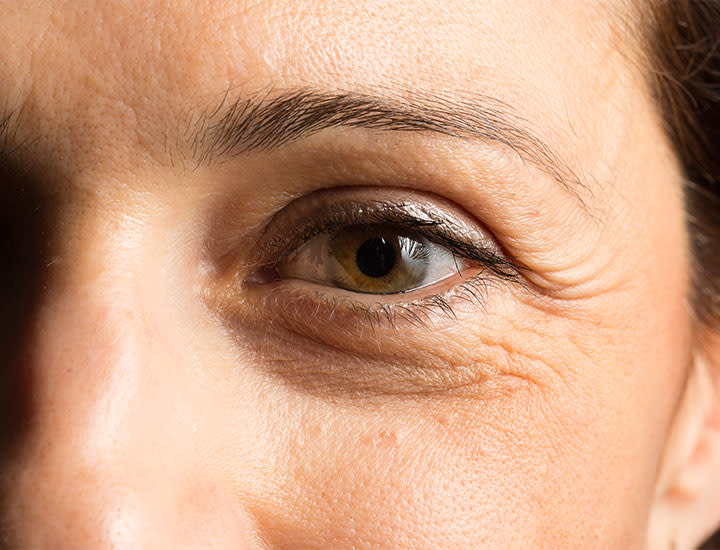Experts Detail The Infamous ‘Ozempic Face’ Side-Effects

Although it can be tempting to take shortcuts to lose weight, some methods, like the recent trend of using the type 2 diabetes medication Ozempic to shed fat, can actually be dangerous for your health. Not only has the recent uptick in Ozempic led to a shortage of the medication for people with diabetes who require it to manage their blood sugar, but doctors and skincare experts are warning about “Ozempic face,” a possible side effect of using the drugs both as a weight-loss method and without the proper medical supervision, as users have shared their experiences with accelerated aging skin.
To learn more about the infamous “ozempic face” and how detrimental it can be to aging skin, we spoke with Ghanima Abdullah, a cosmetologist at The Right Hairstyles and Dr. Anna Chacon, a board-certified dermatologist and writer at MyPsorasisTeam.

Ozempic face
Abdullah explains that Ozempic is a "diabetes treatment that's turned into a weight loss treatment." It helps the pancreas create more insulin. Ozempic also helps slow down the digestive system which makes you feel full for longer and speed up weight loss. That's why people have been using the drug recreationally to lose weight (Khloé Kardashian has even been accused of using this drug to shed some pounds!). "Ozempic is an injectable drug that was initially intended to treat Type 2 diabetes, but is now being used somewhat controversially as a weight loss aid," Chacon says. And, excessively losing this drug can lead to an aging side-effect, "Ozempic face."
"Because of the rapid weight loss that's associated with ozempic use, the face loses the fat volume it once had," Abdullah explains. "Fat in the face isn't such a bad thing. It's what holds the face up, keeps it from sagging too early, and provides [a] slight puff of youth. When the face loses fat, what remains becomes disconnected from the other facial tissues and sagging results." Yikes!
The common traits of Ozempic face include "a face and skin that seem hollow, drooping, and loose," Chacon says. It can also lead to an increase in fine lines. She emphasizes that "while these factors are all essential components in the formula for accelerated aging, it is rapid weight loss rather than the medicine itself that causes these skin changes."

"It's collagen that keeps the fat sort of stuck in place. So if the fat leaves, the collagen sees no point in hanging around either and goes elsewhere in the body. Keeping in mind that collagen starts to decrease in the body at around age 25 anyway, it might go to the limbs to keep them supple instead," Abdullah explains. "So there's a fight for collagen in the body and when you lose weight in your face it goes to another place where it's needed more. You can see this in people who've lost weight rapidly and even in those who got really sick with [COVID-19] and lost weight. The face never quite recovers from rapid weight loss, unfortunately."
With that said, can "Ozempic face" be reversed? Abdullah says that while you can't completely fix Ozempic face, you can take collagen supplements that "can help replace the collagen in the body, as a whole, but your body is going to distribute that collagen where it knows you need it, not where you think you need it." On the other hand, she says that collagen face creams won't be as effective as supplements because collagen molecules are too big to get into the skin.
"You can increase collagen in your face by using a vitamin C serum because it naturally helps your skin produce more collagen," she continues. "It won't make fat, though, and it won't go deep enough into the facial tissues to produce great results, but it does help a little. Using a gua sha or face roller will also help to a degree, but you're not going to see anything astonishing there either."

"Beyond this, there are many cosmetic procedures that aren't as invasive as facelifts that claim to help," Abdullah notes. "Microneedling at an esthetician's office can reach deep enough to stimulate collagen where it needs to be. I find home microneedling ineffective and the needles that are at a proper depth to work really need a professional involved."
Chacon says that it's also important to reach out to your doctor or dermatologist with your concerns. "Consider making notes on any adverse effects you have while receiving treatment with Ozempic, particularly instances of hypoglycemia (low blood sugar)," she says. "Your physician will then have access to this information. When you initially start utilizing new medications or a combination of therapies, doing this is very beneficial." Noted!

